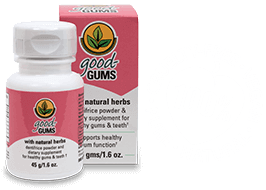7 Best Herbs for Your Respiratory Health

Our respiratory system never sleeps. It is responsible for supplying us with life-giving oxygen and expelling carbon dioxide in a constant rhythmic dance that keeps us alive.
The healthier we keep our lungs, the more resilient they’ll be if they have to cope with a respiratory emergency or pandemic. And because our lungs are also under constant attack from toxins in the environment, it’s important we keep our respiratory systems healthy and strong enough to handle the below threats.
Potential threats to our respiratory systems:
- Smog
- Pollution
- Smoking
- Smoke from fire
- Viruses and bacteria
- Irritants
- Dust
- Mould
- Fungus
Fortunately, nature has given us some incredible herbal remedies that not only protect our lungs from environmental threats, but also help to ease congestion, soothe irritated airways, and suppress symptoms such as coughing, sneezing, and other lung-related conditions.
Oregano
Oregano is more than just a flavorsome kitchen herb. As well as containing powerful nutrients that boost your immune system, this perennial plant’s extraordinary healing benefits are owed to its antihistamine and decongestive compounds carvacrol and rosmarinic acid. These compounds make oregano an excellent remedy for strengthening the respiratory tract and improving nasal passage airflow.
Oregano also has phenomenal antiseptic properties capable of destroying a whole variety of harmful fungi and bacteria. In fact, the antiseptic properties in this plant are so remarkable that Jean Valnet, author of The Practice of Aromatherapy, describes the oil of oregano as being so strong that it is capable of sterilizing sewage! Mmm, maybe don’t try that at home!
Best way to use: add a couple of drops of oregano oil in an oil diffuser or onto a clean, dry handkerchief and inhale. The smell also has very calming effects on the brain.
Osha Root
Originally hailed for its magnificent medicinal powers by the Native Americans, this healing herb is one of the top remedies for supporting lung function. The roots of the osha plant contain saponins, phytosterols, camphor, and other oils, which make this herb an excellent cure for coughs, colds, bronchitis, influenza, swine flu, and pneumonia.
The root of this plant is also commonly used to relieve congestion while also increasing blood flow to the lungs.
If your throat becomes sore from environmental pollutants, fungi, or virus infections, then consider ingesting osha root. It has been shown to have a beneficial numbing effect, which helps to alleviate pain caused by irritated tissues in your respiratory tract.
Best way to use: prepare as a tea. Add a handful of dried osha root to 2-3 cups of water and bring to a boil. Reduce to a gentle simmer for at least thirty minutes. Wait to cool and drink.

Eucalyptus
Native to Australia, the incredible healing properties of this plant have been used in Aboriginal communities for thousands of years. When inhaled, this herb boasts a whole range of healing benefits such as its ability to clear stuffy nasal passageways, dilate bronchioles in your lungs, and encourage secretion of sweat glands which help reduce fevers.
Because of this herb’s popular refreshing aroma and ability to soothe throat irritation, eucalyptus is a common ingredient used in cough lozenges and congestion treatments.
Best way to use: if you have a cough or cold, a tight chest or stuffy nose, we recommend putting a couple of drops of eucalyptus oil in a bowl of hot water, put a towel over your head and breathe in the steam. This has been known to help shift sticky mucus out of your system.
Lungwort
As the name suggests, lungwort is an excellent herbal remedy for promoting lung and respiratory health. And not only that, but this tree-growing lichen actually resembles lung tissue in appearance. In the 1600s, it was believed that any plant resembling human physical attributes could heal the part of the body they bore similarities to. While modern science would, of course, later discredit this superstitious theory, there is still much research to show that lungwort’s antioxidant and mucus-clearing properties have a powerful effect on boosting lung health.
Lungwort also contains beneficial compounds that are extremely effective against harmful organisms that affect respiratory health. Today, lungwort is commonly used to aid respiratory problems and soothe irritation in nasal passageways.
Best way to use: prepare as a tea. Either add 4 or 5 fresh lungwort leaves or 1-2 teaspoons of dried leaves into 2-3 cups of water and bring to a boil. Reduce to a gentle simmer for at least thirty minutes. Wait to cool and drink.
Plantain leaf
Not to be confused with the banana-like fruit plant, plantain leaf is actually more similar to a dandelion and can be found in overgrown lawns and meadows. Native to North America, Europe, and Asia, this weedy plant has been relieving respiratory health afflictions for millennia.
Plantain leaf can be found in balms and medication treatment to soothe respiratory distress and inflammation. It is most commonly used to reduce irritated mucus membranes and easing coughs.
Best way to use: prepare as a tea. Put a teaspoon of plantain in boiling water, let it stand for 10 minutes, and then strain. Do not drink more than three cups a day.

Lobelia
According to Potter’s Encyclopaedia of Botanical Drugs and Preparations, this attractive purple-flowered plant is one of the most important discoveries in herbal medicine. Commonly referred to as Indian tobacco or Asthma weed, this herb was once used in Appalachian traditional medicine to treat bronchial asthma and other lung-related conditions.
Its respiratory healing properties are owed to the alkaloid lobeline, which helps to ease congestion and thin mucus. Due to its antispasmodic properties, lobelia is often used in over the counter medicine to help treat symptoms of asthma attacks, such as wheezing, uncontrollable coughing, and chest tightness. The result is deeper and easier breathing.
Best way to use: most commonly available as a liquid tincture. Add up to 7 drops in a small glass of water up to 3 times daily. Please note that each company will have different instructions on how many drops to invest. Never exceed the recommended dose.
Peppermint
It’s one of our favorite herbs. And not just because we use it in our all-natural tooth and gum powder! We love peppermint so much because it’s excellent at preventing and combating harmful organisms that invade your airways.
Not only does this refreshing herb provide a minty flavor to your dishes and teas, but peppermint’s main chemical component, menthol, also acts as a very effective decongestant. Menthol is an expectorant, meaning that it helps loosen mucus from the lungs so you can cough it up.
Because peppermint is an antihistamine and antioxidant, it prevents foreign bodies and allergens from causing inflammation in your respiratory tract. This, in turn, keeps your airways free and open.
Best way to use: either use a couple of drops of pure peppermint essential oil in an oil diffuser or dilute a couple of drops in a bowl of hot water, put a towel over your head and inhale the steam.

Don’t forget to exercise
As well as stocking up on these wonderful herbal remedies, one of the most important things you can do for your respiratory health is to exercise – regularly. And we don’t just mean simple stretches. Cardio is, by far, the best way to strengthen your lungs.
When you exercise, your heart beats faster and your lungs work harder, improving lung capacity. This increases blood flow to your lungs, allowing the lungs to deliver more oxygen into the blood while expelling additional carbon dioxide.
The harder you breathe, the healthier your lungs becomes, so a light jog or aerobics would be the best workout for your lungs.
Exercise is absolutely vital to your overall health. It helps to keep your cardiovascular system healthy, improves cognitive function, your mood, your sleep, and will help you remain healthy well into your old age.

Subscribe To Our Newsletter
Be the first to receive all our news, offers and natural oral health tips and articles.


